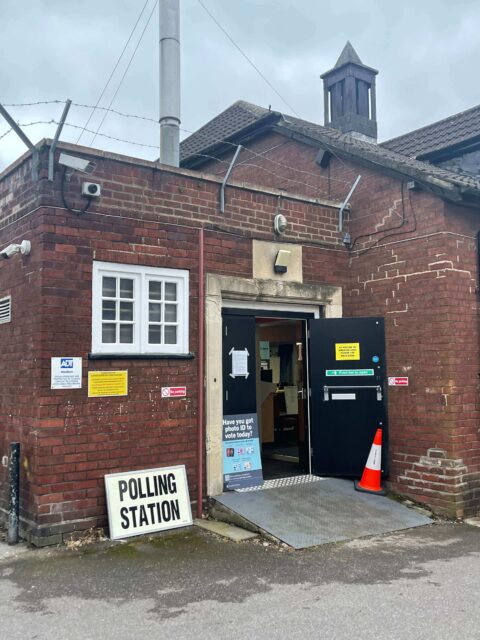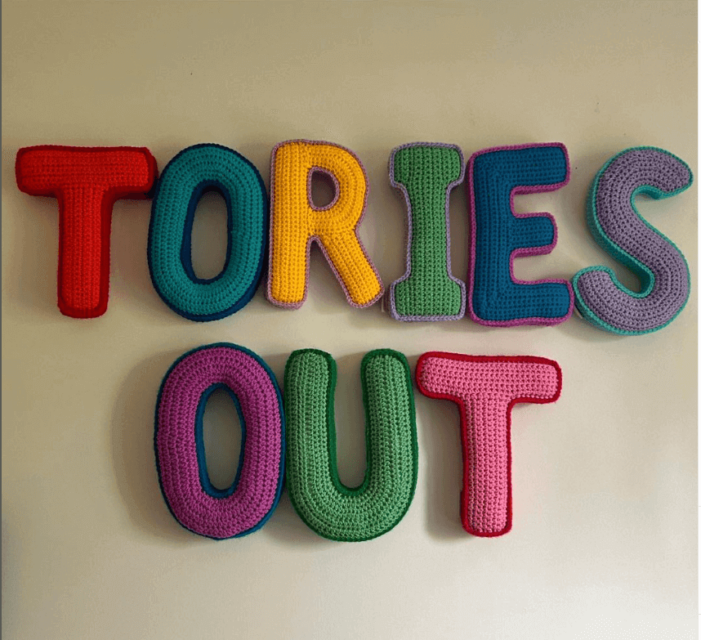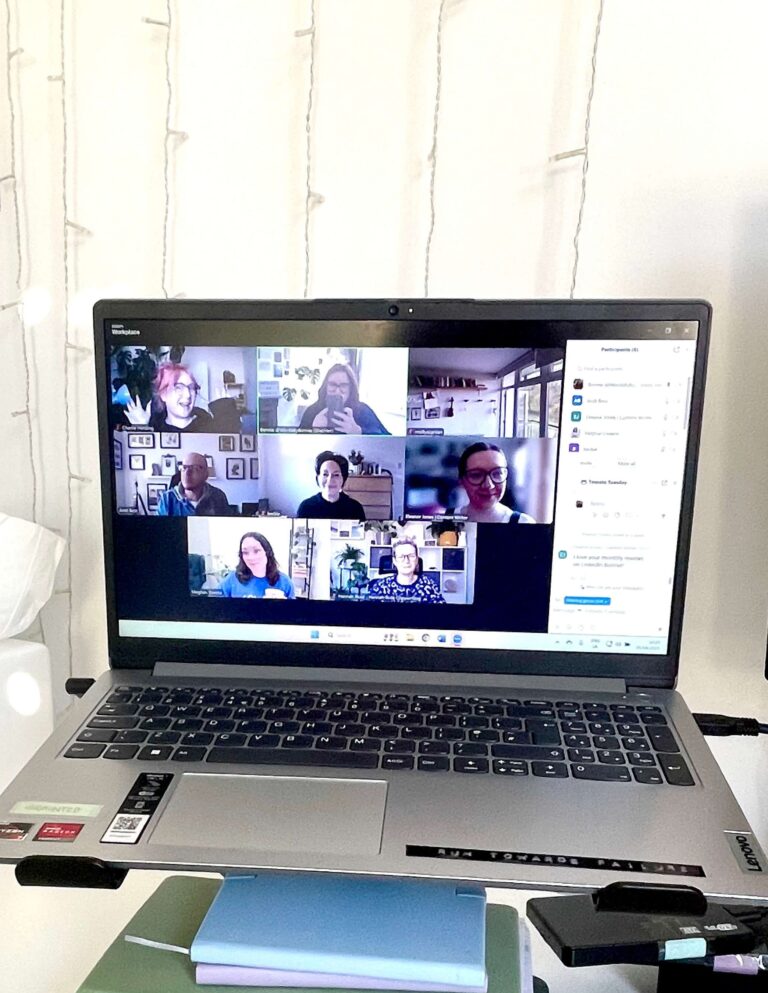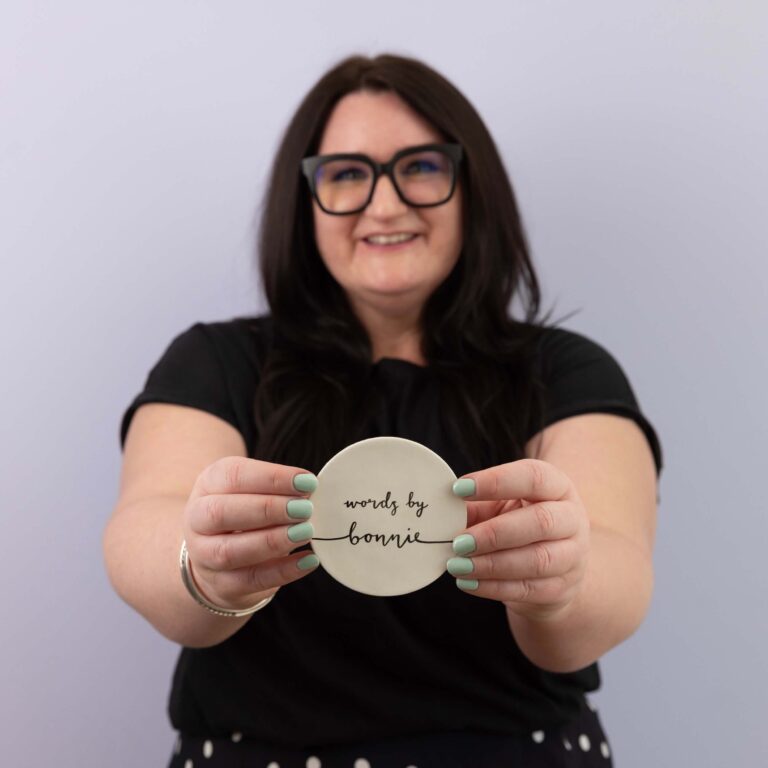
There’s a notification on your phone from a news app.
Another MP has resigned in disgrace. The Prime Minister is being criticised. There’s an election result. The economy is doing something depressing. A debate in parliament has got spicy. Something utterly abhorrent is being voted on in the commons (~cough *the Rwanda policy* cough~).
Whatever it is, it’s an issue you care about. And, there’s a share button right there… the question is, should you post it on your business social media account?
For some small business owners, the response will be “hell yeah!” and others will say “absolutely not”.
Where do you land? Not sure?
In this blog, I’ve pulled together some information which could be helpful to think about before you post, comment, or share political content from your small business account.
ONE: Is your small business naturally aligned with political content?
Yes, I’m an an industry expert:
If you’re linked to any sort of industry which is impacted by government policies, it would make sense for you to comment on the policies which affect your job. For example, if you’re a tutor and you’re outraged by educational reforms; or you’re a nurse and you can comment on the NHS; or you’re a dog walker and you care about the law forcing the muzzling of certain dog breeds, then of course you could create some content on that topic.
It would be political, but still “on- brand”.
Yes, my small business relies on grants and funding:
Having access to small business grants is political. If the government decides to “invest in small businesses” they do so through local hubs. In Bristol, ours is WECA.
It could be incredibly helpful to your followers if you share posts on your experiences, your successes, and your mistakes. Your followers will likely be curious about what happens when you apply, how much money you can be awarded, and what you use it for. This kind of content naturally allows you to comment on other relevant small business policies, both local and national.
No, my small business has nothing to do with politics:
Err… I bet it does. Everyone’s small business is political.
Even copywriting- me, just typing words on a laptop- is political. I write for sustainable companies and businesses so I could post about climate change. I write for local Bristol businesses and I could post about business rates and how the cost- of- living crisis is affecting trade in the city. I write from home and high energy costs mean I’ve put my day rate up- this is all political.
What’s important to remember is that you don’t have to post political content if you don’t want to. Whether a political issue is obviously linked to your business or not, you have a right to speak up, or just get on with your day- to- day.
Tip One: if it’s relevant to your business, it makes complete sense for you to post about politics. Maybe keep it specific to your role and experience, so you can be sure your followers will be interested in your content.

TWO: Is your small business branding and tone of voice unapologetically you?
Yep, I’m the business owner and my personality is front and centre:
Great! You already share lots about your life and general vibes, and your followers like you and connect with you. Sharing your political opinions would not be a surprise to your followers. It’ll be another chance for them to feel aligned with you.
When you feel strongly about an issue or a policy, you’ll be able to easily create authentic content about it. You may even be able to share a personal angle on a topic, which will give it even more impact. If, for example, your followers know you’re waiting for a mental health diagnosis, or some therapy, it’ll be easy to also comment on government approaches to mental health support.
Likewise, you might have been open with your followers that you’ve had an abortion. Naturally, you can comment on the wider policies on women’s access to abortion and government responses to abortion rights.
Posting a petition or a relevant article, along with your personal insight is an accessible way to talk about these important topics.
Nope, my branding is more distant, perhaps more (stereotypically) “professional”.
It might be quite jarring to your followers to see a usually more “aloof” brand or business suddenly sharing an opinion or a personal story.
Make sure any political content you post is in some way linked to your brand, products/ services, or location. I definitely don’t mean “use a political event to sell stuff”- that’s not a good idea. I mean, the political content should clearly align with your business values.
It could feel more on- brand to share things from other similar businesses, or from official sources. Petitions, newspaper articles, and posts from Simple Politics are a great place to start, while keeping your business account relatively neutral.
Tip Two: tread especially carefully if you have a team of employees or freelancers which work with you. They might not agree with your political stance, or they want not to be aligned with you publicly. Check with them first before posting something political to allow them time to distance themselves from you if they want to. Never assume you know someone’s political stance/ leanings. Recently I wrote and posted a blog all about being LGBTQIA+ inclusive as a small business owner and I lost about 15 followers pretty quickly. Obviously, I’m not bothered- I’m a proud ally- but I was pretty surprised by some of the people who unfollowed me.

THREE: Do you care about “turning people off” from your small business with political content?
Yes, I find people reacting negatively to me quite uncomfortable:
There’s absolutely no judgement here- your business is your livelihood, and wanting to be as appealing as possible, to as many people as possible, is completely valid.
Lots of people care about being liked or would worry about posting something potentially contentious. If this is you, it’s totally ok to never post political content.
We live in a 24/7 news culture. We’re all constantly informed and updated with big political stories. You don’t have to add to it if you don’t want to.
Depending on what you post, some people could get shouty in the comments. Some small business owners would love that- it’s all engagement after all! And for others, it’s their worst nightmare.
Perhaps keep your political views away from your business account and post it on your personal social media accounts instead. Or just stick to emailing your MP, signing petitions, and quietly donating money to causes you care about. You’re still making a difference.
No, I really don’t care what other people think of me and my views:
OK! This is a good sign that posting political content and commentary would work well for you. The more authentic and honest you can be, the more you’ll naturally attract your ideal followers. Those who feel aligned with you will want to work with you.
If you feel prepared and confident to handle the discussion you may be igniting- crack on!
Try to be consistent with your messaging. You could unintentionally be off- putting if your content is about one thing and then suddenly it’s about something completely different. Bouncing from one political topic, to another, and then another will confuse your followers and could look band-wagon-y and insincere.
Tip Three: Think carefully how you would like to respond to public criticism and how you will feel, before you post.
FOUR: Do you care about being “negative” or experiencing a dip in engagement due to political content?
Social media is a highlight reel. It’s mostly full of shiny, happy, joyful things. People show up as themselves, but it’s usually a polished, positive version. Followers generally respond well to positive things. (Check out the stats on engagement and wedding pics, or announcements about babies…!)
Here’s the thing: politics is very rarely positive. If you want to post political content online, you’re effectively going to be focusing on the negatives.
Getting the balance between creating uplifting, business- related content, and then sharing something heavy and difficult is not easy. There’s no way to put a “positive spin” on something as awful as policies related to violence against women and girls, or institutional racism in the Met. Trying to find one, or trying to shoe- horn a business reference into your political content will come across as tone- deaf and icky*.
So, get comfortable with sharing “negative” (and important, honest) stories, and prepare for your engagement to drop a little.
Tip Four: if in doubt, run your potential post by some trusted business pals, or people in your community. Be open to their feedback and amend the post if it could be (unintentionally) offensive, tone- deaf, or icky.

FIVE: Can you share political content accurately and responsibly?
Social media is flooded with click- baity headlines and heartbreaking stories of injustice which demand engagement. The stories appeal to our humanity and we’re (probably) all guilty of hitting “like” or “share” without doing some due diligence.
Ask yourself: is this information from a credible source? Is this information accurate? Is this information helpful and clear?
If the answers to these questions are not a vehement “yes!” then it is irresponsible for you to share it.
It’s especially difficult to engage critical thinking skills when a post is emotional. Topics such as the rules for MPs being charged with sexual assault, or the many inequalities trans- people are facing, instantly grab our attention and stand out as unfair. But… disingenuous people can easily sneak misinformation in amid all the emotion. And, without realising it, you’re spreading it further.
I’m absolutely not saying “don’t post serious political content”- raising awareness and starting discussions is extremely important.
What I’m saying is, if you’re going to share political content, then share sensitively, intentionally, and accurately.
Tip Five: Make sure you follow credible sources of information directly from their accounts. Avoid sharing posts from unverified social media accounts, and double, triple check anything you post from your own account.
SIX: Are you the right person to share this political content?
You and I don’t know each other, but, since you’re a business owner, and you’re thinking about what you should/ shouldn’t post about politics, I think you’re probably a nice person.
You want to “get it right” and “not upset people”, but also “make a difference”.
When it comes to posting political content it’s hard to know what to do. Saying nothing can feel inauthentic, and saying something can feel risky.
Instead of adding your own voice to the noise online, it might be better to use your “platform” and your privilege to promote others’ voices. If there’s someone with lived experience or proven expertise, then they’re the people we should all be listening to.
Tip Six: follow Benji, Nina, Blair, Everyday Racism, Simple Politics, The Good Law Project, and The Byline Times.

SEVEN: Can you think of ways to be political without being controversial?
Here’s where thinking tactically and considering nuance is important. There are ways for you to show up online as a political person and post political content without inspiring debate or conflict.
Here are some ideas you may feel comfortable with:
- Share a picture of your “I’ve voted” sticker, without saying which party you voted for
- Share and take “dogs at polling stations” pictures (the highlight of any election day!)
- Remind your followers about access to polling stations and any important dates
- Create content on the history of voting and the work for the suffragettes
- Film a “get ready with me to go and vote” video
- Focus on issues in your local area, rather than “big” national stories
- Mention if/ when you’ve written to your MP- you don’t necessarily have to share what about
- If you ever see a “good news” political story, give it a share!
There you have it- seven questions to ponder before posting political content online.
My little anxious self wants to remind you- I don’t get everything right and I’m not always consistent. I’ve written this blog with the intentions of being helpful and informative, never, ever, ever preachy. If you think I’ve put my foot in it somewhere, or I’ve overlooked something, I absolutely want to know. Pop me an email at bonnie@wordsbybonnie.com.









